

4. Early childhood education and care
Early childhood education and care (ECEC) includes all institutions run by the non-public and public child and youth welfare services which cater for children until they start primary school.
Day-care centres ( Kindertageseinrichtungen ) provide for either children under the age of three (ISCED 010) or from the age of three up to starting primary school (ISCED 020) separately (in Krippen and Kindergärten , respectively) or operate as one setting for the entire phase of early childhood education and care. In past years the profile of day-care centres has changed considerably. The number of facilities, which offer ECEC exclusively for children from the age of three up to starting school has decreased while more and more centres offer day care for both age groups. One reason for this change in the supply structure is the expansion of day care for children under three years of age agreed by the Federation, Länder and local authorities. The legal right to ECEC in a day-care centre or child-minding service from the age of one entered into force on 1 August 2013. A nationwide needs-oriented supply of day-care places for children is to be established in order to create the basis for fulfilling this right.
For children who have reached compulsory schooling age but whose level of development does not yet allow them to cope with the challenges of primary school, Schulkindergärten , Vorklassen oder Grundschulförderklassen have been established in some Länder. These institutions are classified at ISCED level 020 and fall under the responsibility of the ministries of education.
Under the Basic Law ( Grundgesetz ), as part of its responsibility for public welfare, the Federation has concurrent legislative competence for child and youth welfare. This also applies to the promotion of children in early childhood education and care ( Kinderkrippen , Kindergärten , Horte or Kindertagespflege ). The Federation exercised its legislative authority in this field by passing Book Eight of the Social Code ( Achtes Buch Sozialgesetzbuch – Kinder- und Jugendhilfe – SGB VIII) in June 1990.
Pursuant to paragraph 22 of the Book Eight of the Social Code, day-care centres for children and child-minding services are called upon to encourage the child's development into a responsible and autonomous member of the community. Furthermore, early childhood education and care is designed to support and supplement the child’s upbringing in the family and to assist the parents in better reconciling employment and child rearing. This duty includes instructing, educating and caring for the child and relates to the child’s social, emotional, physical and mental development. It includes the communication of guiding values and rules. The provision of education and care is to be adjusted to the individual child’s age and developmental stage, linguistic and other capabilities, life situation and interests, and take account of the child’s ethnic origin. In terms of pedagogy and organisation, the range of services offered should be based on the needs of the children and their families.
In this context, the providers of day care must not only ensure the best interests of the child, but also developmentally appropriate and suitable procedures for participation and the possibility of complaints in personal matters. According to the attitude of the pedagogical staff, who place children as individual personalities in the centre of pedagogical action, education cannot take place without participation.
If children with and without disabilities are supported together, the day-care facilities for children and the local youth welfare authority cooperate with other rehabilitation agencies involved (§ 22 paragraph 1 (3) SGB VIII).
The legal framework of the Federation for child and youth welfare is completed, supplemented and extended by the Länder in their own laws.
The principles of education policy in the ECEC sector are laid down in the Joint Framework of the Länder for Early Education in Day-Care Centres ( Gemeinsamer Rahmen der Länder für die frühe Bildung in Kindertageseinrichtungen ) which was resolved by the Standing Conference of the Ministers of Education and Cultural Affairs ( Kultusministerkonferenz ) and the Youth Ministers Conference ( Jugendministerkonferenz – JMK) in 2004 and updated in March 2022.
Quality development in day-care centres and in child day care is a task for society as a whole. Since 2019, the Federal Government has therefore been supporting the Länder with additional funds for quality development measures in child day care in order to further develop quality nationwide and to make a contribution to creating equal living conditions for growing up in the Federal territory. With the Act on the Further Development of Quality and Participation in Child Day Care ( Gesetz zur Weiterentwicklung der Qualität und zur Teilhabe in der Kindertagesbetreuung ), the so-called Good Child Day Care Act ( Gute-KiTa-Gesetz ), the Federal Government provided about Euro 5.5 billion for this purpose until 2022. With the Second Act on the Further Development of Quality and Participation in Child Day Care ( Zweites Gesetz zur Weiterentwicklung der Qualität und zur Teilhabe in der Kindertagesbetreuung ), the so-called Day-Care Centre Quality Act ( KiTa-Qualitätsgesetz ), the Federal Government is providing the Länder with a total of an additional Euro 4 billion for 2023 and 2024. In order to ensure good early childhood education, care and upbringing, the Federal Government also supports the states with massive financial aid for the expansion of day-care centres: Since 2008, the Federal Government has provided a total of more than Euro 5.4 billion in five investment programmes, from which more than 750,000 additional places could be created. With the fifth investment programme, the Federal Government recently provided Euro one billion.

Living in Germany
Top Expat Cities
Housing & Rentals
Integration
Money & Banking
Visa & Permits
Table of contents
The guide to early childhood education in germany.

Are you planning to move to Germany with your school-going children, or do you want to send them to a German school? There are many things regarding preschool in Germany that expatriates don’t understand. Here is what you need to know.
Nursery School
They also refer to this level as the kindergarten, and they usually enrol pupils for this stage in spring. A child has to have attained 3 years to go to a kindergarten. Upon the parents’ approval and the child’s consent, he/she can go for the morning session that runs from 8 am to noon or opt for the afternoon one from 2 pm to 5 pm. The costs for a kindergarten education are different for assorted schools. State-run kindergartens charge between 70 and EUR 120 every month while self-sponsored ones charge between 150 and EUR 200.If you wish for your young one to stay in the kindergarten the whole day, you can find a school that allows it although it might be difficult to secure a place in such an institution as they tend to be few.
Children Under Three
Children between 1 and 3 years old attend a kinderkrippen, which is an entire day-care usually at day nurseries. However, you might struggle to find a slot for your kid, and if so, it might be easier to look for a ‘Day Mother’ who is also known as a Tagesmütter. Such women usually take care of young children in their homes. You will also find lots of advertisements from babysitters who usually charge per hour for childcare.
Afternoon Child Care
Working parents can benefit from institutions referred to as Horte since it is hard to find an all-day school in Germany. These are meant to supplement childcare services. They are usually open the whole afternoon, and you will be pleased to know that social workers will provide them with food and help them in completing their homework. The children will also be kept busy through games and excursions.
Mostly, children between the ages of 1 and 3 years will be taken care of by childminders, nannies or go to a private nursery since preschool in Germany is voluntary. Since 2013, every child aged 1 year has a right to be in a place that offers childcare services, and the state is looking to subsidise them.
Children between 3 and 6 years also have a legal right to be in a preschool and specific after-school clubs. Those over 6 are entitled to a wrap-around care usually at school. However, not every school has this service.
Fortunately, most day-cares charge very fair rates. Nurseries charge between EUR 70 and 150 for each child on a monthly basis. Low-income families benefit from subsidies that are usually available. This, however, is different for each region and it depends on the number of hours required to take care of the children and the whole family’s earnings. It is possible to be charged more by some institutions if they take care of the child for longer periods or if they have to offer them additional meals.
The state has taken it upon them to find preschool slots for every 3-6 year-olds and nursery placements for around one-third of those under three years. It is usually very difficult to get your preferred place as such slots tend to be very competitive, and some parents even book a place when they get pregnant. Although this might sound ridiculous, in such competitive areas, this is the best strategy.

Most Read Posts
Popular categories.
German Taxes
Health Insurance
Setting up a company
Relocating to Germany

Facilitating a move to Germany is seamless when you rely on the Welcome Center Germany. Established in 2015 with the sole objective of helping people make an effortless move to the country, Welcome Center Germany aims to reduce the challenges involved in settling, moving and establishing local contacts.
Cookie Settings
We use cookies to provide you with the best possible experience. They also allow us to analyze user behavior in order to constantly improve the website for you.
Cookie Consent
To improve the website, the DAAD and third parties set cookies and process usage data . In doing so, the DAAD and third parties transfer usage data to third countries in which there is no level of data protection comparable to that under EU law. By clicking the "Accept all" button, you consent to this processing. You can also find selection options and explanations of these cookies and processing at the end of this page under "Cookies". There you can withdraw consent at any time with effect for the future.
- Privacy Policy
Jump to content

Higher Education Compass
Early childhood education dual system, full time, bachelor of arts.
Bachelor Degree
7 semesters
Standard period of study (amount)
No information
Overview and admission
undergraduate
Admission semester
Winter Semester only
Area of study
Children's Education
Language Education, Mathematics and Science Education, Aesthetic Education, Movement and Health Education
State recognition as a childhood educator is possible.
Admission modus
Selection procedure / qualifying examination
Admission requirements (Link)
Admission requirements
Admission to the full-time plus Bachelor's degree course in Childhood Pedagogy is open to anyone who can demonstrate in accordance with § 49 of the Higher Education Act (HG), can prove that they have a general higher education entrance qualification, entrance qualification for universities of applied sciences or previous education recognised as a subject-specific higher education entrance qualification. For the degree programme with vocational and academic elements variant, an employment contract with a cooperating practice institution in the field of childhood pedagogy is necessary (the Fliedner University of Applied Sciences can help you search for a suitable practice partner with its large industry network).
Lecture period
- 01.04.2024 - 30.09.2024
- 01.10.2024 - 31.03.2025
Tuition fee
438.00 EUR / Month
Fees (Link)
The tuition fees for the study option with vocational and academic elements amount to 488 euros per month.
Languages of instruction
Main language.
Deutscher Akademischer Austauschdienst e.V. Kennedyallee 50 53175 Bonn
All addresses in the DAAD Network
DAAD Newsletters
Receive regular up-to-date information about our work and organisation.
Newsletter - DAAD
Useful Links
- Find Scholarships
- DAAD offices worldwide
Jump to top of page
- Kinder und Kinderbetreuung
- K2 – Bildungsorte und sozialstaatliche Leistungen für Kinder
- Internationales Zentrum Frühkindliche Bildung, Betreuung und Erziehung (ICEC)

The German ECEC System
In Germany, Early Childhood Education and Care (ECEC) as part of child and youth welfare has undergone major change in recent years. The expansion and further development of ECEC services is an important topic on the national political agenda. A core challenge for the ECEC system is to meet families’ rising demand for ECEC provision. To this end, service supply has to be extended and (equal) access to ECEC has to be improved. At the same time, qualified staff, as a prerequisite for such an expansion of services, is lacking in many regions.
Continuous efforts are needed at federal, state (Länder) and local authority level to promote the sustainable development of the ECEC system. Among other things, improving the structural framework conditions is crucial for pedagogical work of high quality in ECEC settings. Improvements are particularly necessary because child day care and early education in ECEC centres or in family day care is an increasingly important factor in children's lives.
Dynamic expansion of ECEC services since 2005
Since the Day Care Development Act (Tagesbetreuungsausbaugesetz, TAG) in 2005 and the Childcare Funding Act (Kinderförderungsgesetz, KiföG) in 2008 came into force, early childhood education and care services in Germany have expanded considerably – especially for children under three years of age. The Childcare Funding Act has introduced the legal entitlement to a place in a child care centre or in family day care for children from the age of one year. As a result, new centres and places were created for this age group in line with the constantly increasing demand. Attendance hours have also increased. Data from the Child and Youth Services Statistics (Kinder- und Jugendhilfestatistik) show that full-day care in publicly subsidised early childhood education and care centres has become the predominant model and has replaced the traditional model of half-day attendance. Although the proportion of children under three years that attend publicly subsidised childhood education and care services continues to rise, there is still a gap between the demand for childcare places reported by families and the number of places available. As in most other countries, inequalities in access to ECEC persist. Participation rates are lower among children from families with a lower socio-economic status, lower educational attainment or a migrant background. Furthermore, both the availability of and demand for early childhood services continue to vary from region to region. Even more than thirty years after reunification, there are still major differences in the participation rates of children under the age of three between the eastern and western federal states. Considerable variations can also be observed between municipalities.
Characteristics of the German ECEC system
ECEC as a multi-level system
In Germany, early childhood education and care is part of the public welfare system, for which the federal government, the 16 federal states (Länder) and municipalities/local authorities share responsibility.
The Federal Government provides a legal framework that includes binding goals and principles for the whole sector of child and youth welfare. These are formulated in the Child and Youth Welfare Services Act (Book Eight of the Social Code, SGB VIII) and also apply to the fostering of children in early childhood education and care services (Kindertageseinrichtungen, Kinderkrippen, Kindergärten, or Kindertagespflege ). The legal framework of the Child and Youth Welfare Services Act is completed, supplemented, and extended by the Länder in their own laws and regulations. These define the framework conditions for the work of ECEC services on the ground, such as curricula, funding, qualification requirements for staff, or staff-child ratios. The respective regulations can differ widely between the federal states. An overview of early childhood education and care laws in the 16 federal states can be found at the Eduserver (Deutschen Bildungsserver) .
The municipalities and districts are the main responsible actors with regard to the development and planning of ECEC provision and policy implementation at the local level. They bear a large part of the funding of these services and partly act as service providers themselves. They are also responsible for meeting the legal right to a childcare place, which was introduced in 2008 and became effective on 1 August 2013.
A diverse landscape of private non-profit providers
The strong tradition of subsidiarity inscribed in “Christian Democratic” welfare states is the reason for another special feature of German ECEC: the important role of private non-profit organisations as service providers and policy actors in the field of ECEC. The principle of subsidiarity (Subsidiaritätsprinzip) underpins the organisation, funding and provision of early childhood education and care services in Germany. It stipulates that private providers have priority over public providers when setting up new services. Public providers are only obliged to intervene if the demand cannot be met by private providers. In addition to the principle of subsidiarity, the early childhood and care system in Germany is also governed by the principle of diversity of services and providers. This principle emphasizes parents' right to choose a provider as well as a pedagogical concept according to their preferences.
The majority of early childhood education and care services are therefore run by a wealth of private non-profit providers. They are predominantly organised under the umbrella of the large church-related and other welfare associations, but to a lesser extent also consist of small local associations and (parent) initiatives. For-profit providers only account for a small share of ECEC provision.
A strong socio-pedagogical tradition
Pursuant to paragraph 22 of the Book Eight of the Social Code (§22 SGBVIII), child care centres for children and family day care are called upon
- to encourage the child's development into a responsible and autonomous member of the community,
- to support and complement education and care in the family, and
- to assist parents in better combining employment and childcare responsibilities.
The mandate of ECEC includes the promotion of children’s social, emotional, physical and mental development. It includes the communication of guiding societal values and is to be adjusted to the individual child’s age and developmental stage, linguistic and other capabilities, life situation and interests as well as the child’s ethnic origin.
Pedagogically, early childhood education and care in centre-based settings and family day care is characterised by a holistic approach and reflected in the deeply intertwined concepts of education, care and socialization. “Education” means that children actively familiarise themselves with all aspects of the world, culture, etc. Largely based on the situational approach, children's development and learning are to be encouraged and supported in meaningful situations and interactions with pedagogical staff. Early childhood services are called upon to create fruitful learning environments involving topics that relate to children’s everyday world and interests. The concept of “upbringing” refers to all pedagogical activities through which the child learns the norms, values, behaviour, and social skills appropriate to participate in society. The concept of “care” comprises looking after and safeguarding children’s physical and mental health.
In an international comparison, the terms "education, care and socialization" characterise a key feature and strength of the mission of early childhood services in Germany. The OECD (2004) emphasises this holistic approach to education and upbringing as particularly noteworthy ( OECD-Country Note 2004 ).
The essential principles of education programmes in the early childhood education and care sector have been agreed on by the federal states in the Joint Framework of the Länder for Early Education in Day-Care Centres ( Gemeinsamer Rahmen der Länder für die frühe Bildung in Kindertageseinrichtungen ) which was adopted in 2004 and updated in 2022. This framework applies to the entire phase of early childhood education in childcare centres and, in some federal states, also extends to school-age children.
Quality development in German ECEC system
Against the background of the ongoing expansion of ECEC services in Germany, questions regarding the assurance and development of structural as well as pedagogical quality of the services gained importance. Since 2019, the Federal Government therefore supports the “Länder” with additional funds for quality development in ECEC in order to further develop quality nationwide and to contribute to creating equal living conditions throughout Germany. Successive Childcare Quality Acts ( Kita-Qualitätsgesetz ) and investment programmes pursue quality objectives such as the improvement of child-staff-ratios and qualifications of staff and the strengthening of leadership in ECEC centres. In addition, parental fees are reduced or abolished (in some states) to lower barriers to children's participation in ECEC.
The progress achieved through the Quality Acts is the subject of an indicator based national monitoring programme ( ERiK ).
More information available under https://www.fruehe-chancen.de/en/
Cookies are files or data records that are stored on your device in order to save information. Sometimes this information is necessary for the functioning of our website. Furthermore, we use cookies to analyse the usage of our website statistically. You can activate the cookies that are not essential in the cookie settings. We do not intend to identify persons, but some cookies can identify your browser or device. Personal data is only stored with your consent or if this is absolutely necessary to provide the requested service. Your voluntary consent can be revoked anytime for processing in the future. More information can be found in the Privacy Policy .
Cookies and other technologies, which are essential for providing our website, can not be disabled. They are mainly used to save user inputs temporarily, e.g. accessibility settings or the display language, which consequently does not have to be set for each individual request. The information saved in these cookies is exclusively used by us (first-party cookies). Necessary cookies can be blocked or deleted via browser settings but this may impact the functionality of the website. For further details on individual cookies please see our Privacy Policy .
With your consent we save cookies to measure how you use our website. We measure which contents are viewed more often or less frequently, when and from where (e.g. time and country) page views occur and we can count the visits to our website. The information is anonymized by aggregation and analysed statistically in pooled groups. On the basis of this analysis the popularity of contents is evaluated and the functionality of our website is optimized. If you disable this option, no cookie is saved and we can no longer determine whether our website has been visited from your device before. For further information on the analysis service and cookies used please see our Privacy Policy .
With your consent, external content will be displayed on our website. Your data will be transmitted to the providers of the external content and the respective third-party providers can store cookies on your end device (third-party cookies). Third-party providers can collect information across websites about the contents viewed by the users. Their cookies may explicitly identify you, your browser or device. The collected data can be used for targeted advertising, to create user profiles and to display contents corresponding to potential interests. In the case of a cross-border data transfer to a country outside the EU/EEC, there may be a lower level of data protection and the risk of usage for control and surveillance or of secret access by the authorities, without a chance of legal remedy. If you disable external content, it will be blocked on our website and no third-party-cookies are stored on your device.
For further information on external service providers and links to their data handling procedures please see our Privacy Policy .
We use cookies and other technologies that are necessary to provide our website. Others are optional and are only used with your consent: With the optional statistical analysis cookies are stored on your device to measure page visits for improving our website. Activating the option show external content allows for data to be transmitted to third-party providers for using their services. Third-party providers may store cookies on your device, process your data globally and use them for advertising purposes, including personalized advertising with profiling.
By clicking on "agree to all" you agree to all optional processing in accordance with Section 25 (1) TTDSG and Article 6 (1) (a) GDPR. In addition, according to Art. 49 (1) GDPR, you agree that third-party providers process your data in countries with a lower level of data protection where local authorities may have access. Under "cookie settings" you can agree to individual processing and revoke your consent at any time. You can find more information in our privacy policy.
Search suggestions:
- Scholarship
Follow us on
Early childhood education.
with integrated professional experience, dual system, distance studies
Bachelor of Arts
Bachelor Degree
7 semesters
Standard period of study (amount)
No information
Overview and admission
undergraduate
Admission semester
Summer and Winter Semester
Area of study
- Children's Education
- Pedagogy, Educational Science
In an optional eighth semester, students can obtain state recognition as state-approved social educators as part of a supervised practical semester. Through this supervised practical unit, which is followed by a colloquium, students acquire additional 30 ECTS credits so as to qualify for a subsequent Master's course.
Admission modus
selection by the HEI
Admission requirements (Link)
Admission requirements
General higher education entrance qualification, entrance qualification for universities of applied sciences or a qualification recognised as equivalent, proof of qualified professional training (educator or similar). Proof of course-integrated, relevant work in a facility specialising in Childhood Education (children aged 0-12 years) of at least 10 hours per week or proof of a guaranteed course-integrated work placement with such facility. There is no aptitude test for this course of study; all potential students who meet the admission requirements can be admitted. If there are more applicants than available places (35), admission will be decided on the basis of numerus clausus.
Languages of instruction
Main language.
- Plan Your Studies
- Study Programs
- Universities
- Requirements
- Living in Germany
- Accommodation
- Statistics & News

German Education System
The German education system stands out for its unique combination of academic rigor, hands-on learning, and commitment to individual development. Let’s explore how this system is regulated, its key stages, and other helpful details for anyone considering studying in Germany.
In this guide: A German school system chart to make it all easier to understand!
Quick Summary
- The German school system is unique in Europe because it sorts students into different educational paths early on.
- Compulsory education requires all children aged six to 15 to attend school full-time at the primary and secondary levels.
- Germany places a great emphasis on vocational education and training (VET). Over 15% of 25-34-year-olds in the country hold a vocational post-secondary education as their highest qualification, far surpassing the 6% average of OECD states.
- Germany is known for offering free or affordable higher education to students from Germany and abroad.
- The German education system comprises five main stages: early childhood , primary , secondary , tertiary , and continuing education .
Do you want to read about individual education stages and not the whole guide?
➡️ Jump to Early Childhood Education ➡️ Jump to Primary Education ➡️ Jump to Secondary Education ➡️ Jump to Tertiary Education ➡️ Jump to Continuing Education
How the German School System Works
The German education system operates under the framework of the Basic Law (Grundgesetz). At the federal level, the Federal Ministry of Education and Research (Bundesministerium für Bildung und Forschung, BMBF) plays a coordinating and supporting role in education matters.
However, education in Germany is primarily the responsibility of the individual federal states (Bundesländer). Each federal state has its own Ministry of Education or equivalent authority responsible for education policy and legislation within its jurisdiction.
These state-level authorities determine many aspects of education, including curriculum, teacher qualifications, and school organization.

Study at Berlin School of Business and Innovation
Creating Tomorrow's Industry Leaders
As a result of this federal structure, education legislation and regulations can vary from one federal state to another, leading to some differences in educational policies and practices across the country.
What is Compulsory Education in Germany?
Compulsory education in Germany is a fundamental commitment to ensure that every child receives an education. All children in the Federal Republic of Germany must start school once they reach the age of six until they complete nine years of full-time schooling at the Gymnasium or 10 years of full-time schooling for other general education schools.
After compulsory education, those who don’t continue to full-time general or vocational schools at the upper secondary level must still attend part-time schooling (compulsory Berufsschule attendance – Berufsschulpflicht), which typically lasts three years.
Compulsory education applies to children and youth with disabilities as well. Depending on their special educational needs (sonderpädagogischer Förderbedarf), they can either join regular schools with non-disabled peers or attend special education institutions (sonderpädagogische Bildungseinrichtungen).
Here’s a German school system chart you will definitely find useful:

How Is the School System Structured in Germany?
The German school system is structured into five main stages:
- Early Childhood Education. This stage is optional but widely attended. Children typically start kindergarten at age three or four, focusing on socialization and early learning.
- Primary Education. Beginning at age six and spanning grades 1 to 4 (or 1 to 6 in Berlin and Brandenburg), this stage marks the start of compulsory schooling and aids the transition from pre-school to formal education.
- Secondary Education. Secondary education in Germany is divided into lower secondary (Sekundarstufe I) and upper secondary level (Sekundarstufe II), aiming to prepare students for vocational qualifications or higher education.
- Tertiary Education. Tertiary education in Germany includes universities, colleges, and vocational academies offering degrees and vocational qualifications. It’s highly respected for its academic quality and research opportunities.
- Continuing Education. Continuing education in Germany offers non-degree courses and workshops for skill development and lifelong learning. It caters to diverse individuals and aims to enhance personal and professional growth.
1. Early Childhood Education
What is considered preschool education in germany.
Early childhood education is optional education and care that children between 0-6 of age receive in the Federal Territory of Germany. This type of education includes both private and public child and youth welfare services for children who have not reached the age to start compulsory education (primary school).
Which Are the Institutions of Preschool Education in Germany?
In Germany, preschool education is predominantly provided by private daycare centers, including crèches, child-minding centers, and kindergartens.
Non-public organizations like Churches and Welfare or Parent’s Associations have priority in offering these services, with local authorities stepping in only when private initiatives are lacking.
Here are the preschool education institutions in Germany:
- Day-care centers (Kindertageseinrichtungen). Typically, a combined setting for children under the age of three and those from age three up to starting primary school.
- Crèches (Kinderkrippen). Children under the age of three.
- Kindergartens (Kindergärten). Children from age three up to starting primary school.
- School kindergartens, Preliminary classes, or Primary school support classes (Schulkindergärten, Vorklassen, Grundschulförderklassen). Children of compulsory school age who aren’t developmentally ready for regular studies, including those with disabilities or special educational needs.
The hours of preschool education are typically arranged through collaboration between parents and management, generally spanning a 7-hour day that includes lunch and sometimes a midday break.
What Are the Teaching Methodology and Materials in Preschool Education in Germany?
Early childhood education in Germany aims to nurture children’s independence and development, offering age-appropriate instruction, values, and rules. It adapts to individual needs, including those of expat children, who benefit from language acquisition and socialization during this phase.
For Children Under the Age of 3
The core educational mission of the German preschool education (age under 3) is enhancing communication skills among kids. Secondly, it is the development of their language skills through social interaction with other toddlers and adults.
Communication and language skills are taught by language role models (educators), finger plays, singing, picture books, and additional teaching practices/instruments.
Furthermore, an important part of pre-educating children is given to motor development. This includes increasing body awareness, self-acceptance, self-confidence, and concentration among toddlers.
Motor development is reached through physical activities, visiting public environments, rhythmic early education programs, singing, and movement playing.
For Children Over the Age of 2
Core values that preschool education seeks to develop amongst children are the enhancement of their teamwork skills, along with their level of integration in daily life activities.
Key areas of German preschool education for children older than 2 are:
- Language, writing, communication,
- Personal and social development,
- Development of values and religious education,
- Mathematics, natural sciences, (information) technology
- Fine arts/working with different media
- Body, movement, health, and
- Nature and cultural environments.
Such values are taught through self-organized learning, creative learning, teamwork-building activities, investigation, and experimental activities.
Assessment of the Educational Achievements in Preschool Education in Germany
Children are not assessed regarding their educational achievement reached by participating in German preschool institutions. Instead, they’re constantly supervised by their educators or trainers regarding their attainment from learning activities.
The opinion of educators is discussed with the parents of children, who together agree on further measures for the development of kids’ learning skills.
Who Supervises Preschool Education in Germany?
Preschool education in Germany is supervised by the State Youth Welfare Offices (Landesjugendämter) in each state (Lander). Providers must meet specific requirements, such as appropriate staff ratios, qualified educators, adequate facilities, hygiene standards, and age-appropriate educational programs.
Kindergarten (early childhood education) in Germany is not entirely free, but the costs are heavily subsidized. Parents typically pay a monthly fee, which can vary depending on the state (Land) and the specific kindergarten.
The fees are income-dependent, with lower-income families paying less and sometimes receiving exemptions. Some states have also moved towards making kindergarten education entirely free.
What If a Child Isn’t Yet Ready to Begin Compulsory School Studies?
There is a middle option for children who have reached the compulsory school attendance age but have not yet reached the needed development. This is relevant for children with disabilities and those needing special education. So, they attend a special school offered by some Landers, known as School Kindergarten or a Preliminary Class beforehand.
2. Primary Education
What is considered primary education in germany.
Primary school, or Grundschule, offers mandatory education through mixed-ability classes for children aged six until they complete grade 4 (or 6 in Berlin and Brandenburg).
As kids finish grade 4/6, primary school marks an important transition phase, as together with parents and teachers, they are placed into different types of secondary schools depending on academic performance and goals.
Which Are the Teaching Practices in Primary Schools in Germany?
Primary education in Germany follows standards set by the Standing Conference of the Ministers of Education and Cultural Affairs of the Länder (Kultusministerkonferenz).
It includes subjects such as:
- Mathematics,
- General studies,
- Foreign language,
- Handicrafts,
- Religion, or ethics.
The curriculum includes topics like intercultural education, sustainability, values education, and more. Parents are encouraged to stay involved in their children’s education.
Learning objectives in primary schools are attained through the engagement of pupils in planning, running, and analyzing study subjects (lessons) in an adapted way, which goes along with their knowledge, interest, curiosity, and concerns. Students are also encouraged to participate in organizing initiatives and interdisciplinary projects of the school.
Germany has two primary school education systems: a 5-day school week with 188 teaching days per year and a 6-day school week with 208 teaching days per year, which includes classes on two Saturdays every month.
Primary school classes typically start between 7:30 AM and 8:00 AM and end at 11 AM or 12 PM. Each lesson lasts for 45 minutes, with breaks for eating and socializing. Most public primary schools don’t have uniforms, and children can wear whatever they want.
What is the Grading System Used in German Primary Schools?
In German primary schools, students are initially promoted to the next grade without formal grading after completing grade 1.
From grade 2 onward, they receive grades based on their knowledge level, ranging from 1 (very good) to 6 (very poor). These grades in Germany are reflected in a school report (Zeugnis), and promotion to the next grade depends on their performance. If a student fails, they may need to repeat the grade.
Does a Pupil Receive a Primary School Leaving Certificate in Germany?
In most of Germany (Baden-Württemberg and Rheinland-Pfalz are the exceptions), there are no formal exams or leaving certificates for primary school. Students are assessed based on meeting specific educational outcomes and receive annual reports.
Who Supervises Primary Education in Germany?
The Grundschule, the first mandatory school for all children in Germany, operates under legal provisions outlined in the Basic Law and state constitutions regarding schools. These provisions cover inspection, parental rights, compulsory education, religious instruction, and privately-maintained schools.
The federal government funds public primary schools in Germany, which means they do not charge tuition fees. However, parents may be asked to contribute toward some expenses, like school supplies or extracurricular activities.
3. Secondary Education
What is considered secondary education in germany.
In the German school system, secondary education follows the primary school stage and is marked by a division into different educational paths, each leading to specific leaving certificates and qualifications. Secondary education is divided into lower secondary (Sekundarstufe I) and upper secondary (Sekundarstufe II).
The lower secondary level is offered for pupils aged 10–12 until they are 15–16 in grades 5–7 to 9–10 and focuses on general education.
On the other hand, the upper secondary level is offered to pupils who have completed the prior level (from the age of 15–16 until 18–19) and prepares students for university or vocational qualifications, with various schools available based on abilities and prior education.
Who is Responsible for Managing German Secondary Education?
In Germany, secondary education is governed by legal frameworks, including the Education Acts and Compulsory Schooling Acts of the German Länder. These laws define curriculum content and qualifications granted upon completing lower and upper secondary education in both general and vocational schools.
Vocational training is regulated by the Vocational Training Act and the Handicrafts Act, addressing matters like contracts, certificates, and trainee rights. Special legislation, like the Protection of Young Persons at Work Act, ensures the protection of young trainees.
Public education in Germany is funded through taxation, and students are not required to pay tuition fees at these levels of education. Private secondary schools may charge tuition fees, but the majority of students in Germany attend public secondary schools, which are free of charge.
What Are the Types of Secondary Schools in Germany?
The Federal Country of Germany offers secondary education in public and private schools. Various secondary schools in Germany cater to students with varying abilities and prior primary education qualifications.
The German educational system is traditionally divided into three main tracks (the Gymnasium, Realschule, and Hauptschule), with some states introducing the Comprehensive School (Gesamtschule) as an alternative or addition to the existing system:

Gymnasium is a prestigious secondary school in Germany that begins around age 10 or 11 and typically lasts until age 18. It covers grades 5 to 12 or 13, offering a rigorous academic education. Students graduate with the “Abitur,” a qualification that grants access to universities and diverse career opportunities.
Realschule starts at around age 10 or 11 and generally concludes at age 16, encompassing grades 5 to 10. This school type provides a balanced mix of academic and practical education. Upon completion, students earn the “Realschulabschluss” diploma, enabling them to pursue vocational training or higher education.
Hauptschule
Hauptschule commences at approximately age 10 and typically ends at age 15, spanning grades 5 to 9. It emphasizes practical and vocational education. Students receive the “Hauptschulabschluss” certificate, which can lead to vocational training or part-time education.
Gesamtschule
Gesamtschule starts around age 10 or 11 and may last until age 16 or 18, depending on the school’s structure. It covers grades 5 to 10 or 12, offering a comprehensive education that combines academic and practical aspects. Qualifications vary but can include certificates equivalent to Realschulabschluss or Abitur, depending on students’ chosen educational paths within the Gesamtschule.
German Schools With More Than One Study Course (Schularten mit mehreren Bildungsgängen)
These schools in Germany offer multiple educational tracks or study courses within a single institution. These can include comprehensive schools, secondary schools (in Bremen), community schools, integrated secondary schools, and others.
German Vocational Schools
German secondary vocational schools are institutions that provide specialized vocational education and training to students who have completed their general secondary education (usually Realschule or Hauptschule). They offer lessons and practical placement, known as a dual system.
These are the types of vocational schools available in Germany:
- Fachoberschule. Offers a 2-year program for “Mittlerer Schulabschluss” holders, leading to “Fachhochschulreife” for entry to universities of applied sciences. A 13th grade option can result in “Fachgebundene Hochschulreife” or “Abitur.”
- Berufsoberschule . Provides 2-year general and in-depth education, enhancing previous vocational knowledge, leading to vocational qualifications or, with proficiency in a second foreign language, “Abitur.” Also offers 3/4-year courses for dual vocational and higher education qualifications.
- Berufsfachschule. Offers education for specific professions requiring formal recognition or vocational training qualifications.
- Berufsschule. Delivers practical, interdisciplinary lessons preparing students for further vocational education or professions based on the dual education and training system.
- Berufliches Gymnasium. A 3-year secondary education program leading to the “Abitur” qualification.
German Private Secondary Schools
Private secondary schools in Germany fall into two categories: “Ersatzschulen,” which offer the same curriculum as public schools but with private funding, and “Ergänzungsschulen,” which provide additional courses beyond public school offerings.
What Are the Curriculum and Teaching Practices in Secondary Education?
German secondary education focuses on fundamental education, individual specialization, and identifying students’ unique abilities, especially in lower secondary education.
Achieving these objectives involves:
- Engaging students intellectually, emotionally, and physically.
- Teaching them independence, decision-making, personal, social, and political responsibility.
- Assisting them in attaining their educational goals.
- Supporting them in advancing their specialist knowledge.
General upper secondary schools, such as Gymnasium, are vital in preparing students for the Abitur or other university entrance qualifications.
These institutions provide comprehensive knowledge in German and foreign languages, mathematics, self-development, social responsibility, and participation in democratic society. Additionally, they offer guidance on academic institutions, admission requirements, vocational options, and career prospects.
Upper secondary education is also offered by German vocational high schools known as “Berufliches Gymnasium.” Over two full-time years, these schools prepare students for vocational qualifications as skilled staff with “Fachgebundene Hochschulreife.”
This qualification opens doors to professions requiring formal qualifications and can serve as a pathway to university entrance if the holder demonstrates proficiency in a second foreign language. Moreover, it enables enrollment in technical universities after two years of study, leading to a “Mittlerer Schulabschluss” maturity certificate.
What Is the Grading System in German Secondary Schools?
The progress of pupils in German secondary schools is evaluated upon a 6-mark grading system as follows:
- 1 (very good)
- 3 (satisfactory)
- 4 (adequate)
- 6 (very poor)
4. Tertiary Education
What is tertiary education in germany like.
Tertiary education in Germany encompasses post-secondary education at various institutions, including universities , universities of applied sciences , and specialized institutions , offering a wide range of academic and vocational programs.
It emphasizes academic excellence, research-oriented education, and practical skills development, leading to Bachelor’s , Master’s , and Doctorate degrees.
Who Supervises German Tertiary Education?
Under the Basic law, higher education institutions enjoy the autonomy to independently manage the scholarship awarding, research, and teaching activity. For administrative issues, such as academic and governmental matters, these institutions have to be in accord with the Lander’s ministry.
Tertiary education at public universities in Germany is generally tuition-free, with nominal semester fees ranging from €100 to €300. Private universities, however, charge varying tuition fees ranging from a few thousand to more, so students should inquire about costs and available financial aid.
Which Are the Institutions of German Tertiary Education?
With more than 400 state-recognized institutions of higher education in Germany, you’ll find an abundance of choices when it comes to tertiary education.
Here are some of the higher education institutions you can choose from and what each specializes in:
Universities (Universitäten)
Universities offer a wide range of academic programs and research opportunities leading to bachelor’s, master’s, and doctoral degrees, with a strong emphasis on research and theoretical knowledge. Universities focus on all types of subjects , including medicine, law, pharmacy, etc.
Colleges of Art, Music and Film (Kunst, Musik-und Filmhochschule)
Colleges of Art, Music, and Film are specialized institutions focusing on arts, music, and film education, offering programs tailored to aspiring artists, musicians, and filmmakers. Basically, they focus on artistic subjects such as fine arts, design, architecture, music, theater, etc.
German Colleges of Art and Music offer the following study courses:
- Visual, design, and performing arts.
- Film, television, and media.
- Art history and art pedagogy.
- History and teaching of music.
- Media and communication.
Universities of Education (Pädagogische Hochschulen)
Specialize in teacher education programs, preparing future educators for teaching roles in schools and educational institutions.
Theological Colleges (Theologische Hochschulen)
Provide theological education and training for individuals pursuing careers in religious studies, ministry, and theology.
Universities of Applied Science (Fachhochschulen/Hochschulen für angewandte Wissenschaften*)
Offer practical and hands-on education focusing on applied sciences, engineering, and technology, leading to bachelor’s and master’s degrees. They typically have a mandatory practical training component (Praxissemester). Such training is carried out on the premises of private businesses or public institutions/administrations to place the student closer to the labor market needs.
Teaching professors in Fachhochschulen , despite being academics, have a strong background of professional experience in the labor market outside of academia.
German Universities of Applied Sciences offer study courses in the following fields:
- Technology,
- Engineering,
- Social Sciences.
Higher Education Institutions Offering Dual Studies (Berufsakademien)
Offer a distinctive dual education system, combining academic training with practical experience through company partnerships and funded training with student wages.
Universities for the German Armed Forces (Universitäten der Bundeswehr)
Provide military-focused education and training for German Armed Forces officers and personnel.
Institutions of Continuing Vocational Education (Fachschulen, Fachakademien)
Offer specialized vocational training and education beyond the secondary level, equipping students with practical skills and qualifications for specific careers.
*In some Landers Fachhochschulen are called Hochschulen für angewandte Wissenschaften.
Qualifications of the German Higher Education System
The German higher education system is renowned for its structured qualifications, including Bachelor’s, Master’s, and Ph.D. degrees, each with distinct characteristics and durations.
Bachelor’s Degree
The first higher education qualification in Germany is the bachelor’s degree. The duration of studies for this degree varies by institution:
- Universities: 6 semesters (3 academic years)
- Universities of Applied Sciences: 6–7 semesters
- German Colleges of Art and Music: About 8 semesters
- Professional Academies: 3 academic years
- Fachschulen: 2 academic years

Bachelor Titles
Depending on the type of higher education institution of higher education issuing it, there are different Bachelor titles, as follows
- Bachelor of Arts (B.A.)
- Bachelor of Science (B.Sc.)
- Bachelor of Engineering (B. Eng.)
- Bachelor of Laws (LL.B.)
- Bachelor of Fine Arts (B.F.A.)
- Bachelor of Music (B. Mus.)
- Bachelor of Education (B.Ed.)
What Bachelor’s Study Fields Are Offered in German Universities?
German universities offer a wide range of study fields, such as:
- Languages, Humanities, and Sport
- Philosophy, Theology, History
- Art studies, Musicology, Theatre studies
- Education, Psychology
- Law, Economics, Social Sciences
- Mathematics, Natural Sciences
- Medicine, Agronomy, Forestry
- Engineering Sciences (e.g., Architecture, Mechanical Engineering)
- Environmental technology, Mining, and more
What Bachelor Study Fields Are Offered in German Universities of Applied Sciences?
German universities of applied sciences offer bachelor’s study fields in the following:
- Agronomy, Forestry, and Nutritional Science
- Engineering Sciences
- Economics/Economic Law
- Social Work
- Public Administration, Administration of Justice
- Information Technology, Computer Science and Mathematics
- Natural Sciences
- Information and Communication Studies
- Nursing and Management in the Public Health System
What Bachelor Study Fields Are Offered in German Fachschulen?
Fachschulen offer courses such as:
- Agricultural Economy
- Social Work.
Core Bachelor subjects of study in these institutions are:
- Electrical, Mechanical, and Construction Engineering.
- Business Management.
What Bachelor Study Fields Are Offered in German Berufsakademien?
Berufsakademien (Vocational Academies) offer bachelor’s degrees in these study fields to prepare students for specific professions:
- Social Work
International study programs are also available at universities and applied sciences universities.
Master’s Degree
A master’s degree is the second higher education qualification in Germany and typically takes 2 to 4 semesters to complete, varying by institution. Universities and equivalent institutions often require 4 semesters, while Fachhochschulen usually require 3 to 4 semesters.
To earn a master’s degree, students need to accumulate 300 ECTS credit points, including those earned during their earlier qualifications, such as a Bachelor’s degree (360 ECTS points for Bachelor degree holders).
Master’s Degree Titles
The master’s degree titles that you can get depend on your institution. See below for each type of institution:
At Universities or equivalent institutions:
- Master of Arts (M.A.)
- Master of Science (M.Sc.)
- Master of Engineering (M. Eng.)
- Master of Laws (LL.M.)
- Master of Education (M.Ed.)
- At Colleges of Art and Music
At Colleges of Art and Music:
- Master of Fine Arts (M.F.A.)
- Master of Music (M.Mus.)
At Universities of Applied Sciences:
For Continuing/Specialist Education:
- Master of Business Administration (MBA)
German Higher Education Programs Outside the Bachelor and Master Level
Beyond the bachelor’s and master’s degree titles, you can also find the following programs and examinations at various higher education institutions:
- Diplom Examination. Some programs lead to a Diplom degree in a single study subject, such as Diplom in Psychology or Engineering. The Diplom issued by Universities of Applied Sciences is comparable to a bachelor’s degree.
- Magister Examination. Another option is the Magister examination, covering combined study subjects, like “Magister of Artium.” A magister degree from universities of applied sciences is akin to a master’s degree.
- Staatsprüfung (State Examination) . Certain professions, such as medicine, dentistry, and law, require a state examination for qualification. This process involves a 2-stage examination conducted by state examiners and academic professors.
- Church and Academic Examination. Theology students who wish to pursue roles like priest or pastoral assistant must pass a Church and academic examination after completing a 5-year study program.
- Postgraduate Study Courses. After bachelor’s or master’s studies, students can pursue 2-year postgraduate study courses to specialize in a specific field or support their existing studies.
- Examination of Colleges of Art and Music. Some programs at German colleges of art and music culminate in a final examination, known as “Abschlussprüfung,” or a concert examination called “Konzertexamen.”
Ph.D. Degree
The Ph.D. degree is the highest education qualification undertaken by the most qualified students. It can be taken at German universities and equivalent institutions in collaboration with non-university research institutes.
Doctoral studies in Germany vary in duration due to their in-depth and individualized nature, involving independent research and culminating in an oral examination, commonly referred to as the “Rigorosum” or thesis defense “Disputation.”
There are several paths to get a Ph.D. degree in Germany, as follows:
- Individual and supervised doctorate
- Structural doctorate
- Cooperative doctorate (combination between universities and universities of applied sciences)
- International doctorate
- Special doctorate
The title received by completing a German Ph.D. study program is Doctor “Doktorgrad.”
Admission Requirements of the German Higher Education Institutions
Are you planning to apply to study at a higher education institution in Germany? Let’s explore the admission process and the requirements you will likely stumble upon.
Bachelor’s Degree Programs
To apply for bachelor studies in Germany, you must fulfill the following requirements:
- Higher Education Entrance Qualification . Applicants need either “ Abitur ” or an equivalent foreign school-leaving certificate. Abitur can be obtained through an examination for non-pupils or employed individuals. International students with unrecognized foreign certificates may require a preparatory course and recognition examination.
- Admission Exam. Some fields, like arts and sports, may require applicants to take an admission examination to assess their core subject knowledge.
- German Language Proficiency (for international students). Proficiency can be demonstrated through language diplomas (e.g., DSD II), proficiency exams (e.g., DSH, TestDaF), or language assessments during preparatory courses (Studienkolleg).
- Certificate of the Akademische Prüfstelle (APS) (for international students from China, Vietnam and India). Foreign students who completed APS in their home country may need to submit this certificate.
- Alternative Proof (for refugee students). Refugee students can provide alternative documentation, such as entrance exams or German language assessments, possibly after enrolling in Studienkolleg for recognition assessment.
Colleges of Art, Music, and Film
Admission to German colleges of art and music typically requires a higher education entrance qualification and artistic aptitude. In some cases, applicants with exceptional artistic or musical talent may be admitted even without a higher education entrance qualification.
German Universities of Applied Sciences
To apply to a university of applied sciences in Germany, applicants have to submit:
- Higher education entrance qualification/Fachhochschulreife
- Artistic aptitude (I.e., for design study program)
Berufsakademien (Vocational Academies)
To apply to a German Berufsakademien, you have to submit any of the following:
- Higher education entrance qualification
- Fachhochschulreife and entrance examination
Fachschulen
To apply in a German Fachschulen, applicants have to submit any of the following:
- Fachhochschulreife (for a recognized profession which needs a prior training)
- Proof of minimum 1-year work experience in the profession
- Qualification from the Berufsschule
- Qualification from the Berufsschule/equivalent qualification
- Proof of minimum 5-year work experience in the profession
Or for social professions:
- Mittlerer Schulabschluss (Middle School Leaving Certificate)
- Proof of relevant education and training
Master’s Degree Programs
Admission requirements for a master’s degree in Germany include:
- Bachelor degree related to the master studies
- Entrance examination (for master’s studies in the art field)
- Special aptitude (for master’s studies in the art field)
- Proof of minimum 1-year work experience (for some specific programs)
Admission requirements for a German PhD degree include:
- Master’s degree issued by universities/equivalent institutions, universities of applied sciences, or other institutions (if the applicant is well-qualified).
- Bachelor’s degree (on some special occasions). This applies if the applicant is well-qualified, and an examination to evaluate their aptitudes, “Promotionseignungsprüfung,” has to take place. Sometimes, an additional preparatory course will be necessary.
- Evidence of having passed the first state examination (Erste Staatsprüfung)
For more information, see our detailed guide on requirements to study in Germany .
Quotas and Restrictions for German Higher Education Programs
German higher education study courses can have various admission procedures:
Nationwide quotas:
Nationwide quotas apply when applications exceed available spots.
The selection of the students in such cases is based on:
- Relevance and the average grade of prior qualifications (20%),
- Awaiting period between obtaining the university entrance qualification and applying for academic studies (20%),
- Higher education provider’s selection procedure (60%).
Local restrictions on admissions:
- Local restrictions apply when some courses have limited spots controlled by institutions or the Foundation for Higher Education Admission (SfH).
- A joint database helps manage applications and allocate open spots to other students if a candidate is accepted elsewhere.
No restrictions on the number of applicants:
- Some courses have no set limits, admitting all eligible applicants without pre-selection.
- Occasionally, a prior notification period may be required for accepted students.
5. Continuing Education
What is considered adult education and lifelong learning in germany.
Continuing education in Germany, also known as lifelong learning, addresses the ever-changing demands of the labor market. It includes various categories, including adult education, professional development, recognizing prior experience, flexible learning pathways, and opportunities for seniors to pursue personal interests.
Germany boasts a robust system of adult education and ongoing training. This system includes the following offerings:
- Evening classes,
- Vocational courses,
- Non-formal educational programs tailored to adults seeking to acquire new skills or qualifications.
These educational opportunities are provided by diverse entities, including municipal and private institutions, religious organizations, trade unions, industry and commerce chambers, associations, political parties, businesses, government agencies, academies, family education centers, vocational schools, Fachschulen, as well as media outlets like radio and television.
Frequently Asked Questions (FAQ)
Can children be homeschooled in germany.
Homeschooling is generally not allowed in Germany. The country has strict regulations that require children to attend public or state-approved private schools. There are very limited exceptions, such as for children with specific medical conditions that prevent them from attending regular schools.
In most cases, homeschooling is not permitted, and parents can face legal consequences if they choose to homeschool their children.
When Do Schools Start in Germany?
The school year in Germany usually starts in late August to early September, varying across the 16 German states, and typically ends in June or July, with slight variations depending on the state and school.
Are There Any Breaks or Holidays During the German School Year?
Schoolchildren in Germany receive a total of 75 days of holiday per year, which includes 12 Saturdays. These holidays are divided into six school holiday periods that coincide with the separate school terms:
- Autumn Holiday (Herbstferien). Usually two weeks in October or November.
- Christmas Holiday (Weihnachtsferien). Typically around two weeks in late December and early January.
- Winter Holiday (Winterferien). Varies in duration and may range from a few days to two weeks, depending on the region.
- Easter Holiday (Osterferien). Lasting two to three weeks in March or April.
- Whitsun Holiday (Pfingstferien). Varies from a few days to two weeks and falls around May or June.
- Summer Holiday (Sommerferien). The longest break lasts around six to seven weeks, usually starting in late June or early July and ending in late August or early September.
These breaks can vary by federal state, and the exact dates may change each year. Some schools may also have additional holidays known as “bridge days” (Brückentage) around public holidays or special occasions. It’s essential to check the school calendar for specific holiday dates in your region or school.
When Does the Academic Year Begin and End in Germany?
At most universities in Germany, the winter semester (WiSe) typically runs from October 1st to March 31st , while the summer semester (SoSe) usually takes place from April 1st to September 30th .
However, “Fachhochschulen” (universities of applied sciences) often start and end their semesters a month earlier.
Are There Any Breaks or Holidays During the German Academic Year?
As we said, the academic year in Germany typically starts in October and ends in September, divided into two terms: the winter semester (October to March) and the summer semester (April to September). Students have holidays during the Christmas and Easter periods.
Additionally, there are semester breaks of approximately six to eight weeks between the two terms. During these breaks, students often use the time for writing assignments and exam preparation or may choose to pursue internships or employment opportunities.
How Do Private Schools in Germany Differ From Public Schools?
In Germany, public schools are generally more prevalent than private schools. Most students attend public schools because they are government-funded, offer free education, and adhere to the country’s standardized curriculum.
Public schools are also known for their high educational standards and quality. Private schools, while they offer certain advantages such as smaller class sizes and specialized programs, tend to be less common, and are often chosen by families who can afford the tuition fees or have specific preferences for alternative educational approaches or religious instruction.
How Does Germany Promote International Student Exchanges?
Germany promotes international student exchanges through programs like Erasmus+ and the German Academic Exchange Service (DAAD).
Erasmus+ facilitates student mobility within Europe, allowing German students to study abroad and welcoming international students to Germany. DAAD offers scholarships for German students studying abroad and supports international students coming to Germany at various study levels.
German higher education institutions also offer numerous English-taught programs , making them accessible to non-German-speaking students and providing support services for incoming exchange students to ensure a smooth transition into academic and social life.
Join 262,114 students interested in studying in Germany

Download The Guide

Quick Links
8 Steps to Study in Germany How To Apply To Study in Germany German Education System Requirements Universities in Germany International Programmes Financing Your Studies German Student Visa German Health Insurance Germany Blocked Account Learn German Guide German Cities Cost of Living
Latest News and Statistics
Higher education in germany: key trends & statistics, new study reveals high level of satisfaction among students at german universities, germany scholarships up by 3% in 2023 – 31,400 students benefited, indians overcome chinese as top source of international students in germany, over 3,800 university students in germany were under 18 in 2022.
- Privacy Policy
- Cookie Policy
10 Best universities for Early Childhood Education in Germany
Updated: February 29, 2024
- Art & Design
- Computer Science
- Engineering
- Environmental Science
- Liberal Arts & Social Sciences
- Mathematics
Below is a list of best universities in Germany ranked based on their research performance in Early Childhood Education. A graph of 37.6K citations received by 1.28K academic papers made by 10 universities in Germany was used to calculate publications' ratings, which then were adjusted for release dates and added to final scores.
We don't distinguish between undergraduate and graduate programs nor do we adjust for current majors offered. You can find information about granted degrees on a university page but always double-check with the university website.
1. University of Freiburg
For Early Childhood Education
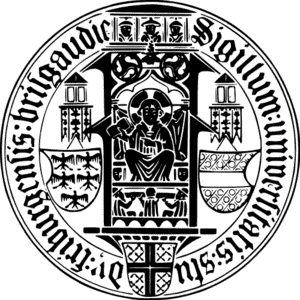
2. University of Munich

3. University of Koblenz-Landau
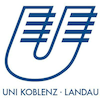
4. Goethe University of Frankfurt am Main

5. University of Tubingen
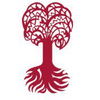
6. Ruhr University Bochum

7. Free University of Berlin
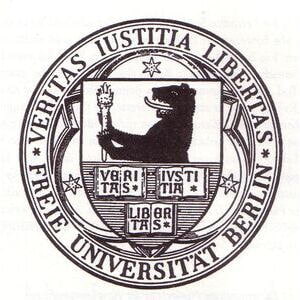
8. University of Bielefeld
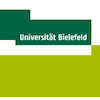
9. Saarland University

10. Leuphana University of Luneburg
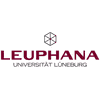
The best cities to study Early Childhood Education in Germany based on the number of universities and their ranks are Freiburg im Breisgau , Munich , Koblenz , and Frankfurt .
Liberal Arts & Social Sciences subfields in Germany
These languages are provided via eTranslation, the European Commission's machine translation service.
- slovenščina
- Azerbaijani
Activity report - European working group on early childhood education and care

Within the context of the European Education Area (EEA) strategic framework, the working group on early childhood education and care (ECEC WG) supports EU members states to implement the European Quality Framework for ECEC, which is a key part of the 2019 Council Recommendation on High-Quality ECEC Systems.
Throughout 2022-2023, the ECEC WG has been focusing on the monitoring and evaluation of quality in ECEC. This topic is one of the five pillars supporting the provision of quality ECEC described in the European Quality Framework for ECEC.
- Published by: European Commission
- Languages available: All EU languages
- Read online: European working group on early childhood education and care (ECEC) - Activity report (2022-2023)
Additional information
- Education type: Early Childhood Education and Care
- Evidence: N/A
- Funding source: European Commission
- Intervention level: N/A
- Intervention intensity: N/A
- Target audience: Teacher Student Teacher Head Teacher / Principal Teacher Educator Government staff / policy maker
- Target audience ISCED: Early childhood education (ISCED 0)
- Year of publication: 2024
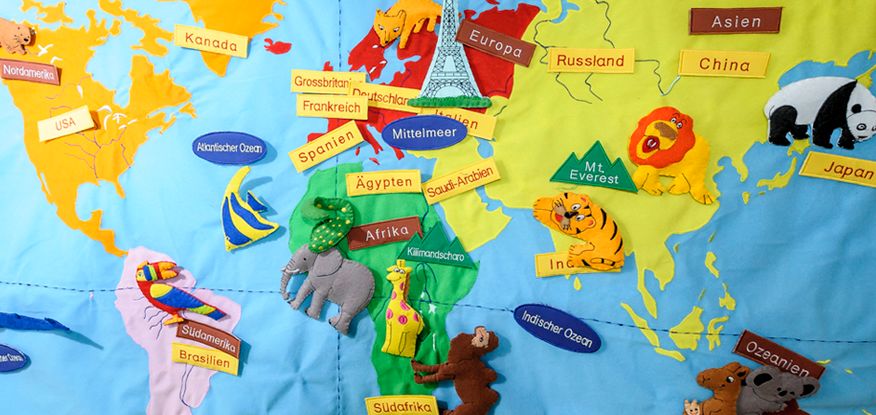
philosophies, concepts and methods
On this Portal you find a selection of papers for free download originally published in German on www.kita-fachtexte.de. Our professional learning ressources are prepared for the education, training and professional development of early childhood professionals. There are more papers to follow!
FURTHER TOPICS

Child development
In the first years of life, children develop more and faster than at any other time in their life. At the same time, the process of development varies from child to child. Therefore, it is the responsibility of adults to provide individual guidance and support to children as they grow. .

Early childhood profession
Reflective practice supports ongoing professional learning and development and provides deeper understanding of the complexities inherent in educators’ roles and responsibilities. Educators who enact a commitment to reflective practice and who take action make a positive difference to the quality of the education experience and improve outcomes for children and families.
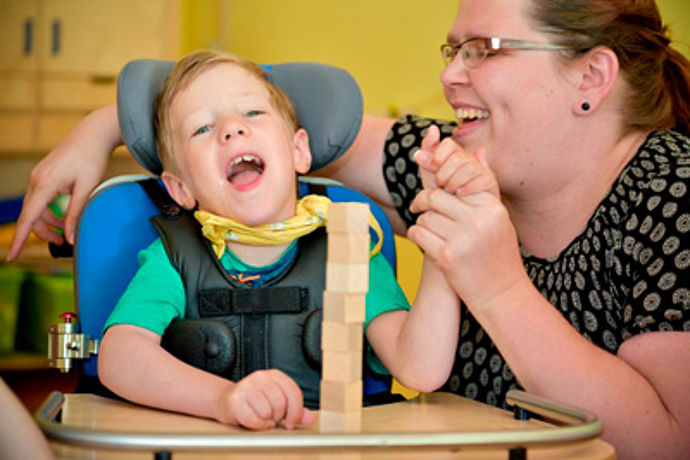
Inclusive pedagogy
The living arrangements of children and adults are very diverse. Goals of inclusive education are: perceive diversity as a strength, talk openly about similarities and differences, prevent and respond to discrimination and bias.

Daily routines in early childhood education
Early childhood professionals must reflect on their centres daily routine regularly. Dialogue within the team promotes the development and improvement of concepts and creative ways of structuring learning environments and opportunities for children.
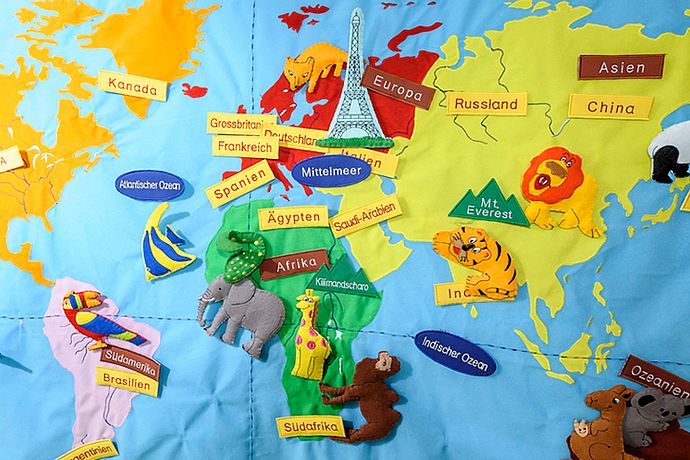
Early childhood education in an international context
Early childhood education is defined differently internationally and learning experiences for the youngest are designed differently. There is agreement that early education already has a significant influence on the educational pathways and successes of children.

Educational concepts
Friedrich Fröbel’s early ideas about education have brought about a variety of educational concepts that continue to provide direction for early childhood professionals. In addition, childcare centres define their individual service philosophy from these various pedagogical concepts.
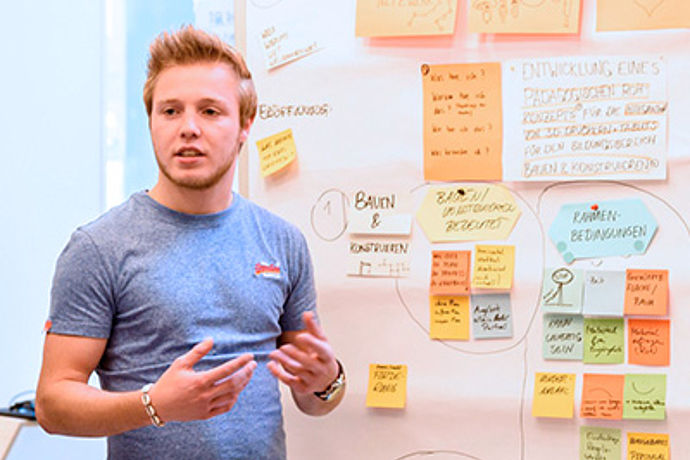
Quality development, evaluation and research
Early childhood settings have gained increasing importance as places for early learning and education. As a result, an assessment of programmes and practices as well as identification of areas for quality improvement and further development are incredibly important. Staying informed about current research and putting research findings into practice are key components of the quality development of childcare centres.
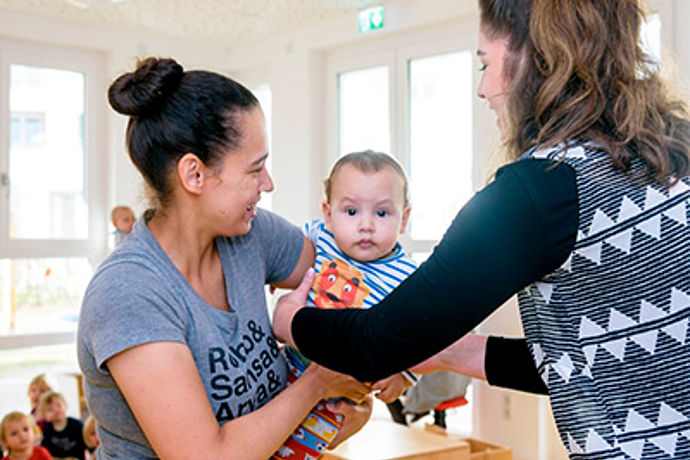
Collaborative partnerships with families
Children’s relationships with their family is the most important; families have valuable information about their children to share. Children’s development thrives the most when families and educators work in partnerships to support children’s wellbeing and learning.
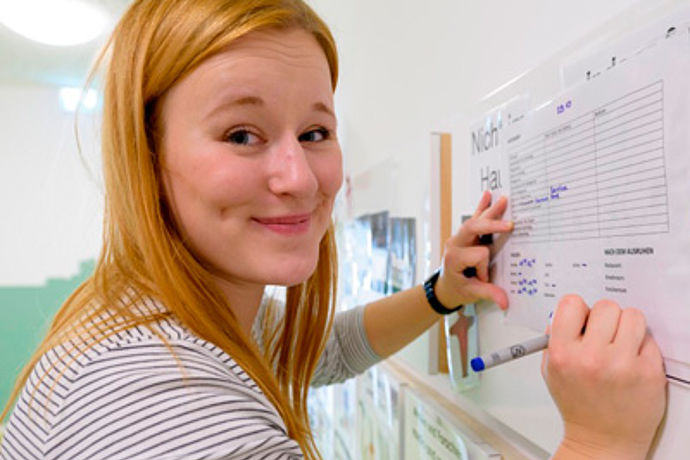
coming soon: Observation and documentation
Early childhood professionals regularly observe children’s learning and play as well as their individual interests and strengths. These observations help educators to assess children’s development and further plan learning opportunities.
More From Forbes
3 chatgpt prompts that helped a parent transform his child’s future.
- Share to Facebook
- Share to Twitter
- Share to Linkedin
Phil and his daughter Daisy
Every parent has a desire to support their child's educational journey.
For Phil Birchenall, a business consultant from Manchester U.K. this desire led to an innovative approach in leveraging artificial intelligence for his daughter in her academic challenges. Phil’s journey with ChatGPT, exemplifies how AI can be harnessed to personalize educational experiences.
I spoke to Phil about his experience and the remarkable outcomes.
The Challenge Of Keeping Up
Phil’s daughter Daisy, a bright and enthusiastic 11-year-old, was falling behind in Math.
The pressures of transitioning from primary to secondary education, compounded by long-term illness at home, was taking its toll. Daisy struggled with key areas such as long division, squared and cubed numbers, written multiplication, percentages and fractions.
Recognizing the need for targeted support, Phil explained to me that he intended to help Daisy himself. But, he soon realized that the traditional methods of Maths he studied at school were insufficient. Phil reflected, "After watching my daughter attempt to solve the questions, I heard my inner voice channel Mr Incredible... 'Why would they change math!?'"
The AI Revelation
Phil had been exploring AI tools in his own work and was aware of their potential to revolutionize various sectors, including education.
When Is The Voice Season 25 Finale All About The Star Studded Event
Sam altman apologizes to scarlett johansson over openai chatbot voice she called ‘eerily similar’ to hers, donald trump jr attends father s hush money trial as melania and ivanka avoid it here are the other trump allies in court.
Inspired by a video by Doug Cunnington on training AI for specialized roles, Phil decided to create a virtual math tutor tailored to Daisy's needs. He noted, "I figured that if we could train an AI with relevant information about our needs, it could just work. And boy, did it work."
Crafting The Perfect Tutor
Phil recalls that he began by instructing ChatGPT to be a personalized tutor, called Izzy, with this prompt:
"I want you to act as a personalized math tutor for an 11 year old UK student preparing for her exams. Your role is to assess her current mathematical understanding, identify any areas of weakness and develop strategies to improve her skills in those areas. This will involve explaining concepts in a clear and engaging way, providing practice questions, and offering feedback on her progress. You should also incorporate elements of test-taking strategies, such as time management and question analysis, to better prepare her for the format and pressure of her exams."
Phil provided detailed information about Daisy’s areas of struggle and her personal interests:
Focused Areas Prompt:
"My daughter is a bright kid but consistently scores around 50% on the test papers she has been working on. Can the tutor focus on the following areas to help improve: long division, multiplying fractions, squared and cubed numbers."
Personal Interests Prompt:
"My daughter is called Daisy, she’s 11 years old. She absolutely loves dogs, and she likes having a laugh, so the more we can add humor and dog references, the more engaging the tutor will be."
Engaging And Effective Learning
Izzy’s sessions were meticulously tailored to Daisy’s needs.
The AI provided clear explanations, step-by-step guidance and practice questions that focused on the identified weak areas. It incorporated Daisy's love for dogs into the examples, making the lessons relatable and fun. This approach not only helped Daisy understand complex concepts but also kept her motivated and engaged.
"The sessions with 'Izzy' were scarily on point: they focused on Daisy's specific needs, targeting precise areas where she needed help," Phil explained to me.
Beyond The Classroom
Phil’s initiative went beyond academic support.
By integrating elements of Daisy’s interests and creating a supportive learning environment, he demonstrated how AI could be used to foster a positive and fun educational experience. The success of Izzy's tutoring sessions was evident in Daisy’s improved performance in her exams, a testament to the potential of AI in personalized education.
Phil proudly noted, "Daisy smashed her exams and her teacher commended her for how much improvement she’d made on math."
Daisy's certificate
The Future Of Learning
Phil’s journey with ChatGPT underscores the transformative potential of AI in education.
It highlights the importance of personalized learning experiences that meet individual needs and interests. As Daisy transitions to secondary school, Phil plans to further adapt Izzy to her evolving academic challenges, possibly integrating her newfound love for German into the math problems. "We’ve talked about creating a new version of ‘Izzy’, updated on the areas she needs to improve on now," Phil mentioned.
Embracing AI In Education
Phil’s experience with Izzy offers valuable insights into how AI can be harnessed to support and enhance traditional education methods.
It serves as a reminder that education must evolve to keep pace with technological advancements. By embracing AI, educators and parents can create dynamic, engaging and effective learning environments that prepare students for the future. As Phil remarked to me: "It's insane to think that you could quickly train a virtual tutor to address any number of specialized needs among the students you're working with,"
In a world where AI is set to redefine various aspects of our lives, Phil Birchenall's innovative use of ChatGPT for his daughter’s education is a beacon of what’s possible when an entrepreneurial parent and AI converge. His story is a call to action for educators and parents to explore AI's potential in creating personalized and impactful educational experiences.

- Editorial Standards
- Reprints & Permissions
Join The Conversation
One Community. Many Voices. Create a free account to share your thoughts.
Forbes Community Guidelines
Our community is about connecting people through open and thoughtful conversations. We want our readers to share their views and exchange ideas and facts in a safe space.
In order to do so, please follow the posting rules in our site's Terms of Service. We've summarized some of those key rules below. Simply put, keep it civil.
Your post will be rejected if we notice that it seems to contain:
- False or intentionally out-of-context or misleading information
- Insults, profanity, incoherent, obscene or inflammatory language or threats of any kind
- Attacks on the identity of other commenters or the article's author
- Content that otherwise violates our site's terms.
User accounts will be blocked if we notice or believe that users are engaged in:
- Continuous attempts to re-post comments that have been previously moderated/rejected
- Racist, sexist, homophobic or other discriminatory comments
- Attempts or tactics that put the site security at risk
- Actions that otherwise violate our site's terms.
So, how can you be a power user?
- Stay on topic and share your insights
- Feel free to be clear and thoughtful to get your point across
- ‘Like’ or ‘Dislike’ to show your point of view.
- Protect your community.
- Use the report tool to alert us when someone breaks the rules.
Thanks for reading our community guidelines. Please read the full list of posting rules found in our site's Terms of Service.
I'm an American mom living in Germany. Here schools days are shorter and there are more vacations throughout the year.
- I'm an American who moved to Germany over a decade ago.
- I went to school in the US, but now I'm raising three kids in Germany.
- Here there are more short vacations sprinkled throughout the year.

I'm an American living in Germany with my family, and it's been fascinating to observe the differences in elementary school between the US and Germany.
My oldest son has attended elementary school in Germany for a couple of years now and I worked at an elementary school here for a few years before having my own kids, so I've gotten to witness firsthand what makes the German system unique.
German elementary school is 4 years
In Germany, kids go straight from preschool (which is called Kindergarten in Germany) to elementary school; there is no year of Kindergarten as Americans know it.
When my oldest child was in his last year of preschool , he did "Vorschule ," a weekly activity to prepare the kids for going to school, such as an introduction to letters and numbers. German elementary school ends in fourth grade. From there, kids are divided into three separate school systems for grades 5 to 12.
School supplies are taken seriously
Some months in advance of my oldest child's first day of first grade, we got the list of school supplies — and it was epic. There were many notebooks that had to be a specific size and had to have a colored folder cover for various subjects. Gym shoes had to have only white soles, and every single item had to be labeled, even each individual colored pencil. Fortunately, our local stationery store is an expert in these matters, and I was able to simply hand over our supply list and receive the items.
Related stories
To top it all off, German kids take a "Schulranzen" to school, a large and expensive backpack that can hold many books and supplies. Shopping for it is a rite of passage for incoming schoolchildren.
The first day of school is short and memorable
On the first day of every German school year, you'll see some new first graders staggering around carrying a "Schultute," a massive triangular cone filled with anything from sweets to books to school supplies. This uniquely German custom makes this day very memorable for new schoolkids — many Germans keep theirs forever.
Typically, the first day of school is shorter than usual, and many families do something special to mark the event. For my oldest child's first day of school, we went out to lunch together and took photos of him with his Schultute .
There are many more short-term vacations
For many kids in Germany, the elementary school day is very short compared to an American school day. Classes typically start between 7:30 and 8 a.m., and the school day is usually over between 12 and 1 p.m., but sometimes as early as 11:30.
Many elementary schools offer afterschool care where kids can do homework and play in the afternoon, but depending where you live in Germany, a spot isn't always guaranteed. Kids who have a shorter school day are assigned homework during the week. My son doesn't get homework during the week at his day school, but he will usually have some homework over the weekend to do.
Summer break in Germany is much shorter than in the US. It's six weeks in total. However, German kids have many shorter breaks throughout the year than American students. For instance, my son has two weeks off for Easter vacation and two weeks off for the Pentecost holidays in Bavaria.
Many kids get to school independently
While some kids do take a school bus or are driven to school by their parents, it's more common in German for elementary school kids to go to school either totally independently or among groups of friends.
Usually starting in second grade, kids will often walk, ride their scooters, or take public transportation to school without their parents. When I drop my younger kids off at preschool, I see hordes of elementary school kids en route to school sans grownups. Schools generally hire crossing guards to supervise the street crossings right by the school building to make sure it is safer for the students.
- Main content

COMMENTS
Furthermore, early childhood education and care is designed to support and supplement the child's upbringing in the family and to assist the parents in better reconciling employment and child rearing. This duty includes instructing, educating and caring for the child and relates to the child's social, emotional, physical and mental development.
A child has to have attained 3 years to go to a kindergarten. Upon the parents' approval and the child's consent, he/she can go for the morning session that runs from 8 am to noon or opt for the afternoon one from 2 pm to 5 pm. The costs for a kindergarten education are different for assorted schools. State-run kindergartens charge between ...
More children are enrolled in early childhood education and care (ECEC) in Germany than in the OECD on average. 39% of children under age 3 in Germany were enrolled in ECEC services in 2019, whilst 94% of children aged 3 to 5 years old were enrolled. ... Across levels of education, Germany devoted a below-average share of GDP than the OECD ...
EARLY CHILDHOOD EDUCATION AND CARE. 4.1. Introduction. Traditionally in Germany children under the age of three years are looked after in Kinderkrippen (crèches) and children from the age of three up to starting school in Kindergarten. In past years the profile of day-care centres has changed considerably.
Box 1. Distinction between early childhood educational development and pre-primary education: The revised ISCED 2011 classification There are many different ECEC systems and structures within OECD countries. Consequently, there is also a range of different approaches to identifying the boundary between early childhood education and childcare.
Admission requirements. Admission to the full-time plus Bachelor's degree course in Childhood Pedagogy is open to anyone who can demonstrate in accordance with § 49 of the Higher Education Act (HG), can prove that they have a general higher education entrance qualification, entrance qualification for universities of applied sciences or previous education recognised as a subject-specific ...
Participation in high-quality early childhood education (ECE) has a positive effect on children's well-being, learning and development in the first years of their lives. In Germany, 67% of 2-year-olds are enrolled in ECE. This increases to 89% of 3-year-olds, 94% of 4-year-olds and 96% of 5-year-olds.
In Germany, the percentage of students enrolled in private institutions at all early childhood education level is comparatively high. (67 %, rank 10/72 , 2021) Download Indicator. The number of hours per year pre-primary teachers spend teaching in public institutions is comparatively high in Germany. (1755 Hours, rank 1/27 , 2021) Download ...
41 Top Early Childhood Education Study Programs in Germany for 2023. There are 41 study programs available at 36 universities in Germany, according to data provided by Erudera.com. . Why should you study in Germany?. Germany is one of the world's top study destinations for international students and definitely a higher education paradise.
GERMANY Summary The Federal Ministry for Family Affairs, Senior Citizens, Women and Youth (Bundesministerium für Familie, Senioren, Frauen und Jugend) is responsible for early childhood education and care (ECEC) for children from birth until primary school age (6 years) in family day care and child day care settings in
This book draws on the perspectives of leading German scholars to provide a systematic overview of early childhood education and care (ECEC) in Germany, furthering international understanding of ...
This book draws on the perspectives of leading German scholars to provide a systematic overview of early childhood education and care (ECEC) in Germany, furthering international understanding of the complexities involved in ECEC topics in Germany. The book provides a unique insight into parts of German ECEC rarely seen outside of the country. Offering in-depth insights into historical ...
28 Top Early Childhood Education Bachelors in Germany for 2023. There are 28 study programs available at 26 universities in Germany, according to data provided by Erudera.com. . Why should you study in Germany?. Germany is one of the world's top study destinations for international students and definitely a higher education paradise.
In Germany, Early Childhood Education and Care (ECEC) as part of child and youth welfare has undergone major change in recent years. The expansion and further development of ECEC services is an important topic on the national political agenda. A core challenge for the ECEC system is to meet families' rising demand for ECEC provision.
ABSTRACT. This book draws on the perspectives of leading German scholars to provide a systematic overview of early childhood education and care (ECEC) in Germany, furthering international understanding of the complexities involved in ECEC topics in Germany. The book provides a unique insight into parts of German ECEC rarely seen outside of the ...
13 Top Early Childhood Education Masters in Germany for 2023. There are 13 study programs available at 13 universities in Germany, according to data provided by Erudera.com. . Why should you study in Germany?. Germany is one of the world's top study destinations for international students and definitely a higher education paradise.
Proof of course-integrated, relevant work in a facility specialising in Childhood Education (children aged 0-12 years) of at least 10 hours per week or proof of a guaranteed course-integrated work placement with such facility.
"Early Childhood Education (ECE) Germany - Professional Learning Resources" is a project of Fröbel e.V. and Alice Salomon University of Applied Sciences (ASH). "ECE Germany - Professional Learning Resources" contributes to the reflective practice of early childhood professionals. The portal offers practice-oriented study texts on a wide variety of professional learning themes ...
Early childhood education in Germany aims to nurture children's independence and development, offering age-appropriate instruction, values, and rules. It adapts to individual needs, including those of expat children, who benefit from language acquisition and socialization during this phase.
Early Childhood Education. Compulsory education in Germany generally begins at the age of six, but almost all children—95 percent in 2017—attend early childhood education (ECE) between the ages of three and five. This stage is intended to socialize and prepare children for formal education.
Early Childhood Education in Germany. Exploring Historical Developments and Theoretical Issues. Edited by Bianca Bloch, Melanie Kuhn, Marc Schulz, Wilfried Smidt, and Ursula Stenger. First published 2022 by Routledge 2 Park Square, Milton Park, Abingdon, Oxon, OX14 4RN and by Routledge 605 Third Avenue, New York, NY 10158 Routledge is an ...
Below is a list of best universities in Germany ranked based on their research performance in Early Childhood Education. A graph of 37.6K citations received by 1.28K academic papers made by 10 universities in Germany was used to calculate publications' ratings, which then were adjusted for release dates and added to final scores.
Within the context of the European Education Area (EEA) strategic framework, the working group on early childhood education and care (ECEC WG) supports EU members states to implement the European Quality Framework for ECEC, which is a key part of the 2019 Council Recommendation on High-Quality ECEC Systems.
"Early Childhood Education (ECE) Germany - Professional Learning Resources" is a project of Fröbel e.V. and Alice Salomon University of Applied Sciences (ASH). "ECE Germany - Professional Learning Resources" contributes to the reflective practice of early childhood professionals. The portal offers practice-oriented study texts on a ...
Phil's daughter Daisy, a bright and enthusiastic 11-year-old, was falling behind in Math. The pressures of transitioning from primary to secondary education, compounded by long-term illness at ...
For many kids in Germany, the elementary school day is very short compared to an American school day. Classes typically start between 7:30 and 8 a.m., and the school day is usually over between 12 ...